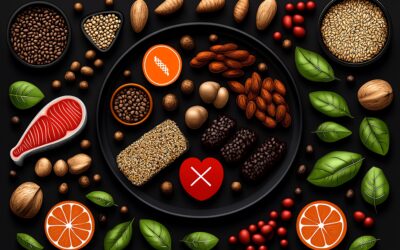Daylight saving – good or bad for your health?
With Daylight Saving Time (DST) ending recently, it’s timely we look at the available evidence to determine whether it’s good or bad for our health. When was DST introduced? DST was originally introduced during World War I as a wartime measure to conserve fuel and...
Chronic back pain – what works?
Most of us will have an episode of acute back pain in our lives and in some of us, the pain will last for weeks and months. The discomfort is such that you want something done about it and the professionals you see want to help you. Which is why various therapies and...
Gut health: probiotics – save your money
There’s endless fascination with the microbiome – that jungle of bacteria, viruses and fungi which live on our skin, in our airways and in our mouths and bowels. In fact, most of our DNA belongs to these microscopic organisms. The microbiome trains our immune...
Physical signs that dementia may be on its way
A recent study into aspirin to prevent disease has turned up interesting findings in relation to dementia risk. When the trial was over, the researchers got the people in the trial (around 19,000 of them initially, mostly older) to agree to be followed up to monitor...
Aspirin to prevent cancer spread
There’s been some news about a study which suggests that aspirin might prevent cancers spreading to other parts of the body. It’s been suspected for a while that aspirin might have anti-cancer effects. For example, there’s evidence it can prevent or slow the...
What you need to know about salt
Wherever you look in the world, salt intake is higher than it should be. Of all the deaths from heart disease, excess salt intake is a significant cause in more than 1.5 million of them. Salt raises blood pressure and makes the natural increase of blood pressure with...
Salt substitutes: are they for you?
There is growing and strong evidence that substituting potassium for sodium in salt is good for blood pressure and stroke prevention. There are a few people who shouldn’t do this, but I’ll come back to that later. The George Institute in Sydney, well known for its...
My CPD Outcomes: Streamlining CPD Management for Practitioners
As the new year begins, it’s the perfect time to review your continuing professional development (CPD) progress and plan ahead for the months to come. Our friends at Cubiko have recently launched My CPD Outcomes, a new feature developed in partnership with the RACGP,...
The Blood Type Diet – anything going for it?
There has been a popular notion, promoted by books on the topic, that you should tailor your diet to your blood type. On face value it’s not a bad idea because our blood types are decided by our genes and these same genes are also known in some cases to be associated...
Habits – how they form and how breaking a bad habit is the wrong way to think about it.
An astounding 45% of our behaviours are habits. We couldn’t get through life with routine behaviours we don’t have to think about, like how we load the dishwasher, or the route we take to mum and dad’s for dinner. Mind you that probably triggers another habit which is...
Obesity drugs are changing everything
Something really big is happening in healthcare at the moment. These revolutions usually occur once in a generation. Endoscopy revolutionised the diagnosis and treatment of a long list of problems including the prevention of bowel cancer and radically shortening the...
What about banning fluoride in drinking water?
Banning fluoride in drinking water is another obsession of the nominee (at the time of writing) for US Health Secretary Robert F Kennedy Jr. (RFK) and his allies - RFK even had Donald Trump jump on the bandwagon during the election campaign. The main assertion is that...












